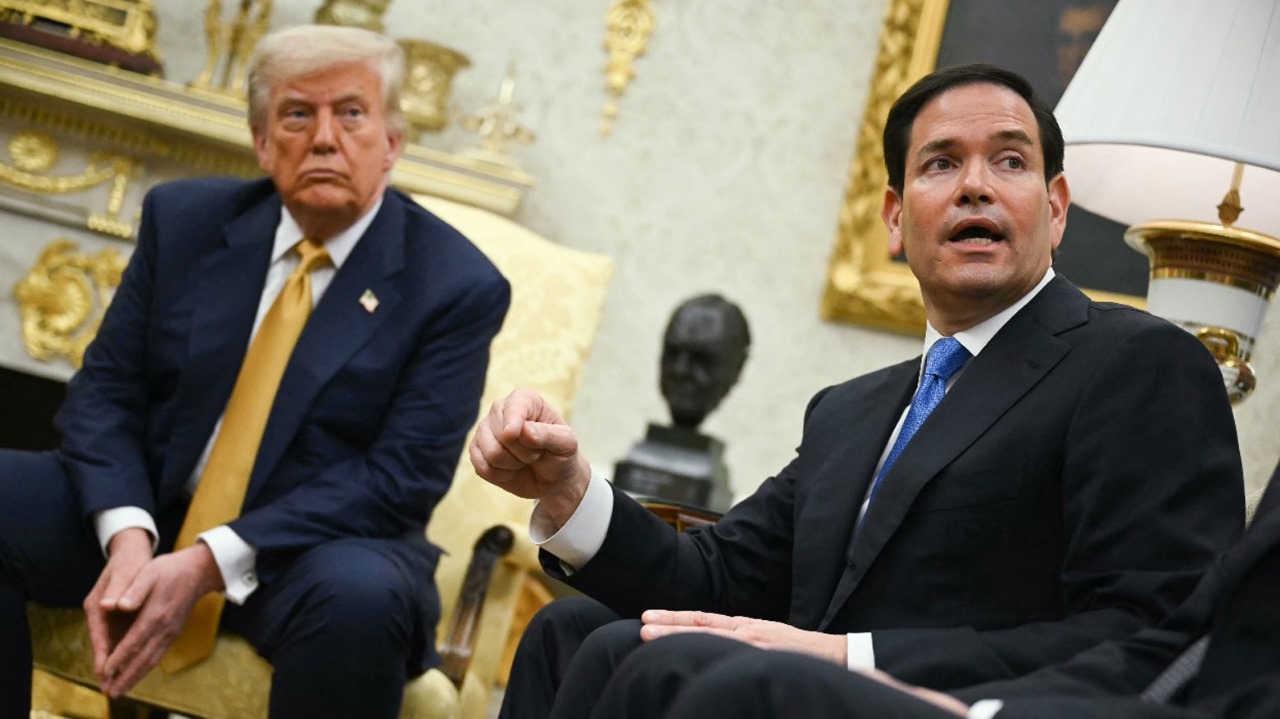U.S. Pushes for Rapid De-escalation Amid Israeli Strikes and Sectarian Clashes in Syria
US pushes Syria de-escalation as Trump signals potential breakthrough amid Israeli strikes and Sweida clashes. Rubio cites "historic rivalries" behind violence while Washington balances Israel ties with engagement toward Syrian stability.

By Ahora Qadi
ERBIL (Kurdistan24) – In a bilateral meeting with Bahrain’s Crown Prince on Wednesday U.S. president Donald Trump cautious optimism that ongoing tensions in Syria—marked by Israeli airstrikes and deadly sectarian clashes—could be de-escalated within hours. Speaking from the White House, Trump told U.S. Secretary of State Marco Rubio to describe the unfolding events.
Rubio Sees Hope for Near-Term Resolution
“In the next few hours, we hope to see some real progress to end what you've been seeing over the last couple of hours,” Rubio told reporters in the Oval Office, as President Donald Trump looked on. Rubio said Washington had been in “constant talks” with both Damascus and Tel Aviv throughout the night and into the morning.
He emphasized that the violence stemmed from long-standing local tensions: “These are historic long-time rivalries between different groups in the south and west of Syria—Bedouins, the Druze community—and it led to an unfortunate situation and a misunderstanding, it looks like, between the Israeli side and the Syrian side.”
Violence in Sweida Spurs International Concern
The clashes in the Druze-majority city of Sweida have drawn heightened global scrutiny, particularly after Israel launched strikes on Syrian army headquarters in Damascus. Israel claimed the move was in response to recent violence in southern Syria, which has resulted in hundreds of deaths and widespread instability.
Rubio acknowledged the severity of the situation, stating earlier at the State Department, “We’re very concerned about it. We want it to stop.”
U.S. Working with Both Sides, Urges Restraint
In a formal statement issued later, the State Department reaffirmed that the United States remains “very worried about the violence in southern Syria,” calling it “a direct threat to efforts to help build a peaceful and stable Syria.”
“We have been and remain in repeated and constant talks with the governments of Syria and Israel on this matter,” the statement added.
Rubio further noted that the U.S. hopes to redirect focus toward Syria’s reconstruction and regional stabilization: “We think we’re on our way toward a real de-escalation and then hopefully getting back on track in helping Syria build the country and arriving at a situation in the Middle East that is far more stable.”
Diplomacy Over Force: U.S. Shifts Toward Engagement
While President Trump has maintained steadfast support for Israel, including its military actions in Gaza and against Iran, Washington has also signaled a shift toward diplomatic engagement with Syria’s transitional government. This comes after Sunni Islamist-led opposition forces overthrew Bashar al-Assad in December.
Amid this evolving political landscape, the U.S. appears intent on balancing its traditional alliance with Israel while seizing what it sees as a diplomatic opening to influence Syria’s path toward reconstruction and long-term peace.